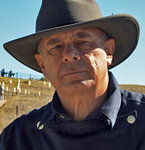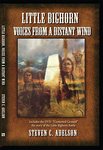

White-faced gravestones sprinkled among a hillside in south-central Montana serve as a grim reminder of an epic battle that took place there almost 150 years ago.
It’s where Donald McIntosh — a resident of Hudson Bay Company Fort Vancouver and a Native American descendant of Red Jacket — was knocked from his horse by Indians and quickly killed.
It’s also where the controversial Colonel Marcus Reno, a man who served in the Inspector General’s Office at Vancouver Barracks for the Department of the Columbia, desperately ordered his overwhelmed troops to withdraw across the Little Bighorn River and up its steep bluffs before he lost them all to the battle.
Lastly, it’s where one of Colonel Jon Gibbon led the first troops onto Custer Battlefield to save Reno’s remaining soldiers. Gibbon later became the Commanding General of the Department of the Columbia in 1885 and one of the first to live in today’s Marshall House in Vancouver.
All of these fascinating links between the Pacific Northwest and The Battle of the Little Bighorn are further explored in historian Steve Adelson’s first book, “Little Bighorn, Voices from a Distant Wind.”
Adelson’s fascination with George Custer’s final battle, known to many as “Custer’s Last Stand” has led him to become a historian of American western expansion and the Indian Wars in the American West.
Adelson is a seasonal Park Ranger Interpreter at Little Bighorn Battlefield National Monument, and a retired educator from Montana State University and the Heritage Institute. He frequently consults on popular media outlets such as the History Channel, the Discovery Channel, CBS Sunday Morning, and the Travel Channel.